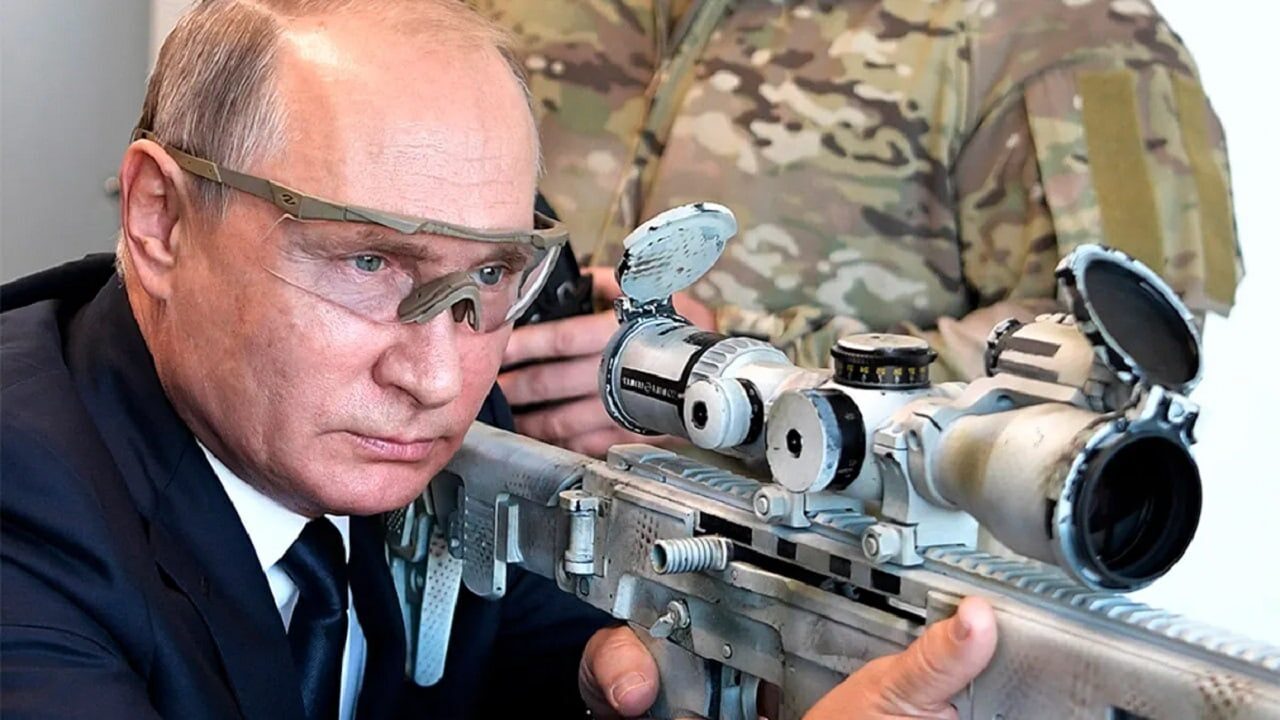Russia’s General Offensive in Ukraine Has Culminated, and Putin is Desperate – With this week’s announcement that Russia will shift its offensive operations to eastern Ukraine – to ‘liberate Donbas’ – Russian President Vladimir Putin has admitted that he can no longer win the war on the terms he set out at its opening.
Putin’s war has ground to a halt. The Russian army originally attacked along three ‘axes’ – from Belarus in the north toward the Ukrainian capital, from the east to take Donbas, and from the south to capture Ukraine’s Black Sea coast, particularly Odesa. The former and the latter are now beyond Russia’s ability with the forces planned for the war. To bring new units into the theater would reduce commitments elsewhere along Russia’s long frontier, or require the extensive use of conscripts, with the attendant problems of morale, desertion, and family resistance back home. (That latter issue grew into a major problem for the Soviet army’s war in Afghanistan in the 1980s).
So Putin’s options were to either escalate dramatically in an effort to break the stalemate or to scale back his war aims. There were recent hints he might escalate with a weapon of mass destruction, but NATO signaled strongly in the last week that it might directly intervene in the war if Putin did that. The war might have then slid toward a nuclear stand-off and jeopardized Putin’s authority at home. Putin wisely chooses to partially de-escalate.
This is not because Putin has changed his opinion of Ukraine as a ‘fake nation,’ but rather because he is militarily over-extended. De-escalation has been forced on him by events and might change if Russia’s fortunes improve in Donbas. But for the moment this is a major step forward for Ukraine as Putin has effectively given up on regime change and demilitarization.
‘Denazification’ (Regime Change)
The ‘denazification’ of Ukraine – by which Putin presumably meant regime change, specifically the deposition of Ukrainian President Volodymyr Zelensky – is now impossible. The Ukrainian government as a reasonably liberal democracy independent of Russia and tilting toward the West will survive.
This was always an absurd argument. Zelensky is Jewish, so accusing him of nazi sympathies was a bizarre rationale. Ukraine is shaky democracy with a major corruption problem, but it is significantly freer than Russia and has moved in the right direction in the last decade. It does have a far-right, as most Western countries do, but Russia has provided no evidence of its outlandish claims that Ukraine engages in ‘genocide’ against Russian-speakers in Ukraine.
Indeed, it is Russian-speaking eastern Ukraine that has suffered the most under the Russian onslaught, and Putin himself basically now a fascist.
Demilitarization
This too is now impossible. Post-war Ukraine will likely not join NATO. That seems to be emerging as a core Ukrainian concession for a peace deal. Ukraine may get a path into the European Union. That will provide a hint of external security. It would be awkward for other EU members to watch as one of their own was invaded. And Finland and Sweden are not in NATO but are in the EU, so this might be a workable compromise.
But Putin’s original goal was to disarm Ukraine by annihilating its military. That is now impractical. Ukraine’s army has fought the Russians to a standstill. Indeed, it has even prosecuted limited offensives. Ukraine is also awash in high-end Western military hardware. It now has one of the best militaries in Europe, an deliciously ironic outcome for Putin.
Zelensky will obviously not give this up. Indeed, the Ukrainian military and population would reject such a move if Zelensky even tried it.
Territorial Acquisition
Putin is long practiced in land-grabs – in Georgia, Moldova, and Ukraine itself. The big question of any peace deal is whether Putin can hang onto his conquests and snatchings. Specifically, will Ukraine accept: Putin’s 2014 Anschluss of the Crimea; the secessionism Putin stirred up on Donetsk and Luhansk and the ‘people’s republics’ he created there; and Russia’s military conquests north of Crimea and in the rest of Donbas in this war.
Zelensky may give on the Crimea. Ukraine is unlikely to ever get it back, and if it helps end the war, it might be worth formally accepting its loss. The tougher question is if Russia can conquer Donbas beyond Donetsk and Luhansk, will the Ukrainians accept that in a peace deal? If Ukraine fights as well as it has in the last month, the Russians might not even accomplish that more limited goal and Zelensky can negotiate harder.
War resolution is ultimately a bargain. Unconditional surrender is rare, and Ukraine cannot defeat Russia like that. But it can tilt the negotiations in its direction by winning on the ground, and Putin has, this week admitted Ukraine’s success at doing so.
Dr. Robert E. Kelly (@Robert_E_Kelly; website) is a professor of international relations in the Department of Political Science at Pusan National University. Dr. Kelly is a 1945 Contributing Editor as well.

